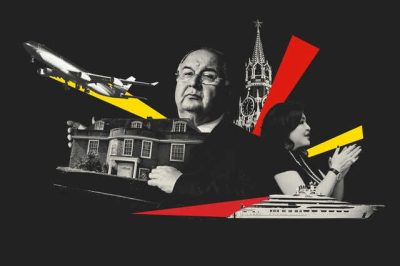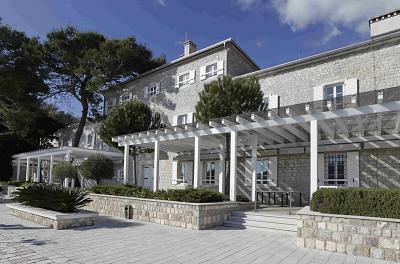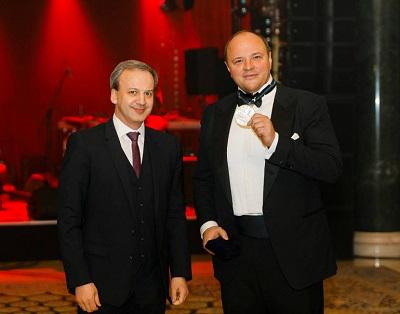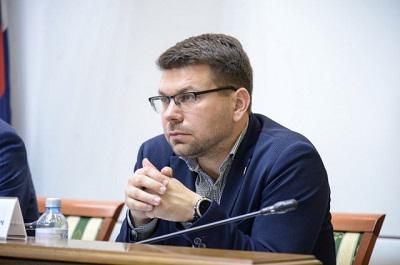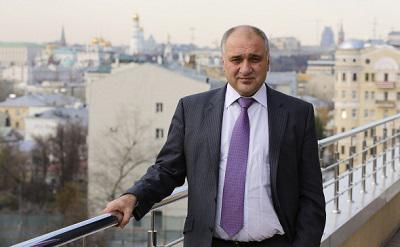Alisher Usmanova Russian businessman and oligarch of Uzbek origin, whose wealth was valued at $19.5 billion in early 2022, and he was one of the 100 richest people globally, faced the threat of Western sanctions at the end of winter.
On February 28, 2022, the European Union blacklisted Usmanov, preventing him from traveling within the EU and seizing all his assets. And on March 3, the US likewise imposed sanctions on him, with some exceptions for his businesses. Usmanov has been described in the Official Journal of the European Union, an EU report, as “a pro-Kremlin oligarch with especially close connections to Russian President Vladimir Putin” and “one of Vladimir Putin’s favorite oligarchs.”
Specifically, Alisher Burkhanovich's real estate in Europe fell under the sanctions, and he possesses property in nearly every European country. The United Kingdom was particularly effective in implementing sanctions. In this country, so much of Usmanov's movable and immovable property was seized that even one of his transfers is exhausting.
So, the Tudor mansion was seized Sutton Place, located on 120 hectares of land in Surrey, which Usmanov purchased for 10 million pounds in 2004. Beechwood House, bought in 2008 from Qatari Sheikh Hamad bin Khalifa Al Thani for £48 million, was also seized on a 4.5-hectare site in the London suburb of Highgate.
However, this is not all that Usmanov owns. We won't discuss the 12-hectare real estate in Moscow in the context of sanctions. But villas on the Italian island of Sardinia, which have not yet been seized, are at risk of being affected. However, after an investigation by The Guardian, which published a list of them and is ready to transfer all available documents to the relevant authorities, this is just a matter of time.
Reporters from The Guardian found six villas on the Costa Smeralda linked to Usmanov, five of which were not frozen under sanctions. They range in cost from 5.3 to 15.5 million dollars.
The priciest villa is part of a complex of at least five neighboring houses associated with Usmanov. They are located in Romazzino, within the municipality of Arzachena on the island of Sardinia. The land belongs to Usmanov’s sister Gulbahor Ismailova. The villa itself is owned by the recently dissolved company Le Mimose, registered on the Isle of Man. This company, in turn, is owned by Usmanov’s Bermudan company Pauillac Property Limited.
Gulbakhor Ismailova directly owns two more villas in the same complex. Other villas are owned by the Italian companies Delemar SRL and Punta Capaccia, which, in turn, are also owned by Usmanov’s Bermudian company Pauillac Property Limited. In early March, the Italian authorities froze Usmanov’s €35 million villa, the only villa he owns directly that has come under arrest.
The fate of Usmanov’s property in Latvia is particularly interesting, as something unclear is happening. Usmanov claims that the Latvian property, like everything else, was irrevocably transferred to trust funds and he no longer owns it, therefore, it cannot be subjected to sanctions. This, as Usmanov and his representatives affirm, also applies to the seized mansions in England and villas in Italy.
It is not known whether Usmanov transferred his property in Latvia to others. It is known, at least in part, what he owns in Latvia. In 2014, Alisher Usmanov bought a villa in Jurmala for 3.9 million euros. The villa was bought by Usmanov’s ex-wife Irina Viner and his stepson, a well-known Moscow businessman Anton Viner.

Before, the house at the corner of Kapu and Zaru streets was owned by Ilya Gerchikov, head of the perfume concern Dzintars. The amount of the transaction (almost €4 million) exceeds the cadastral value of the object by four times. The territory of the villa is fenced and has access to the sea.

The Lithuanian authorities know that Usmanov is the actual owner of the mansion, as well as the EU bodies responsible for sanctions.
The EU's position is not yet clear. But the Ministry of Justice of Latvia said that since Usmanov’s wife and adopted children are not on the sanctions lists, the ban does not apply to this property. They argue that “proof is required that the house is actually used or managed by the sanctioned person.”
Lawyer and sanctions expert Michael O’Kean says, “It’s very common among wealthy people. They structure their enterprises and personal wealth to achieve maximum tax efficiency. This often creates structures in which they relinquish ownership and control for tax optimization. For an asset to be sanctioned, it must be controlled or owned by a sanctioned person. The more complex the ownership structure, the more difficult it is to understand whether this is true or not.”
Additionally, Usmanov is in the final stage of divorce with his wife Irina Viner.

So, formally, the villa on the coast is not subject to the sanctions. However, it was bought with the money of a man who is often referred to as one of Putin’s financial supporters.
Irina Viner is not a stranger to the President of Russia – she trained gymnast Alina Kabaeva, whose property in Switzerland was recently discovered, and whose relationship with Vladimir Putin is well known.
“We had such a relationship with Alina Kabaeva that if I approached her and told her to jump from the 10th floor, she would do it,” Irina Viner once said in an interview.
The links from the Latvian Ministry of Justice are designed for people who are not familiar with real life. At the very least, the fact that Usmanov is not the formal owner of companies and assets on its territory did not stop the British authorities from seizing all of it.
The Germans did not hesitate with Usmanov – on March 2, 2022, the German authorities seized the oligarch’s Dilbar yacht in Hamburg as part of sanctions against Usmanov.

On April 15, the yacht was seized by Germany after the investigation found out that the Dilbar belongs to Usmanov’s sister.
It's not completely clear why the Latvian authorities are following the law regarding Usmanov’s property while Germany and the UK are taking action. Usmanov was labeled in the Official Journal of the European Union as a “pro-Kremlin oligarch with very close connections to Russian President Vladimir Putin.” It also mentioned separately that “Usmanov is known as one of Vladimir Putin’s favorite oligarchs. He is considered one of the Russian businessmen-officials who handle the president’s financial transactions.
Usmanov himself denies being Vladimir Putin’s wallet and also denies starting as a common criminal. In August 1980, Usmanov was arrested and sentenced to eight years in prison for fraud, corruption, theft of state property, and extorting money from an army officer in the Uzbek SSR.
Three decades later, his criminal record was cleared in July 2000, 9 years after the Soviet Union collapsed, by the Supreme Court of Uzbekistan. The court ruled that “the original sentence was unfair, no crime was committed, and the evidence was fabricated.” However, this version of events has been questioned by Craig Murray, the British ambassador to Uzbekistan from 2002 to 2004. Years later, Usmanov’s public relations firm tried to remove the mention of his conviction and imprisonment from Wikipedia.
When evaluating Usmanov’s criminal case, it's important to consider that in 1980, Alisher’s father was the prosecutor of the city of Tashkent, and his company included the son of the deputy chairman of the KGB of Uzbekistan, Bahadir Nasymov, and the son of the Minister of Agriculture of the Uzbek SSR, Ilham Shaykov. At the time of the arrest, Alisher Usmanov was the director of the Foreign Economic Association of the Soviet Peace Committee, which was a branch of the KGB.
Even though the criminal case was annulled, according to witnesses from the time, Usmanov was involved in the so-called “cotton case” – an investigation of wide-scale corruption that affected the southern republics of the USSR. Within this case, containers filled with gold items and money were confiscated from high-ranking officials during searches.
After being released early (serving six years out of eight), Usmanov's subsequent career indicates that he was not innocent – Alisher Burkhanovich became a dollar millionaire after the collapse of the USSR by starting the production of plastic bags, which were very scarce and popular at the time.
After the plastic bags, he moved into the financial sector – Usmanov held positions as Deputy General Director of JSC Intercross from 1990 to 1994, and as the head of the Interbank Investment and Financial Company Interfin from 1994 to 1998. He also worked as an Advisor to the General Director of the Moscow Aviation Industrial Enterprise from 1994 to 1995, and as the First Deputy Chairman of MAPO-Bank from 1995 to 1997.
In the late 1990s, Usmanov became CEO of Gazprom Invest Holdings, an investment holding subsidiary of the Russian state-owned gas company Gazprom, and ran it for more than a decade, until 2014.
It was during this period that his paths crossed with the team of the then-new president, whose wallet Usmanov later became. And what is he paying for now, having fallen under sanctions – only from February 22 to March 15, 2022, Usmanov’s capital decreased by almost a quarter.
